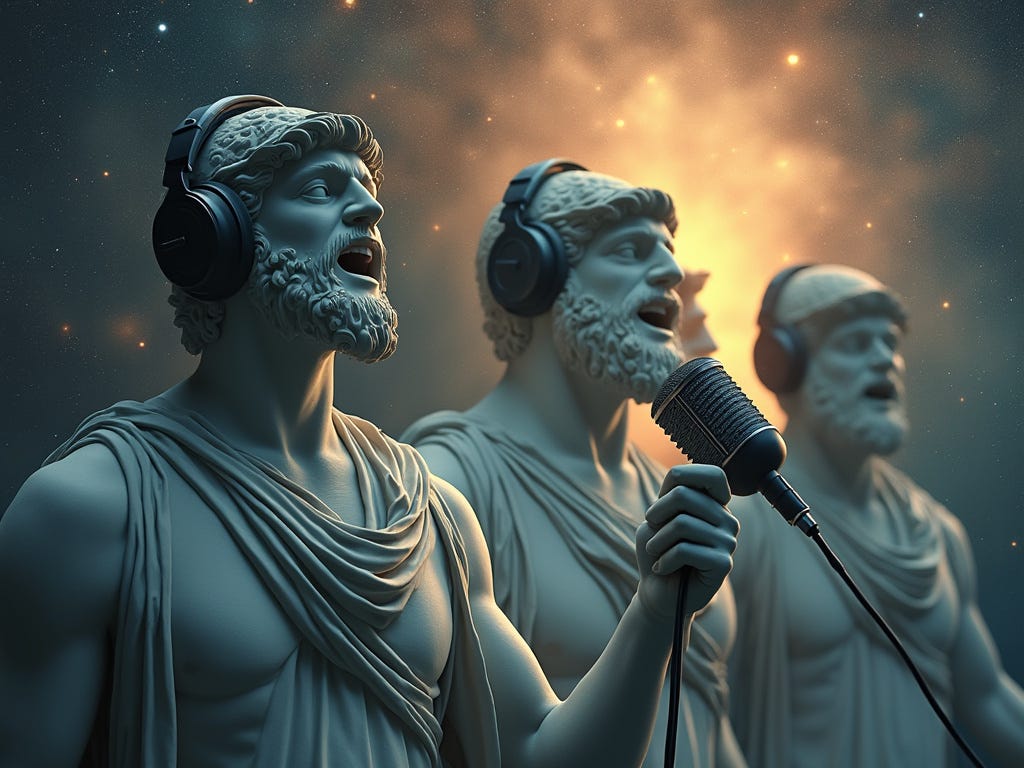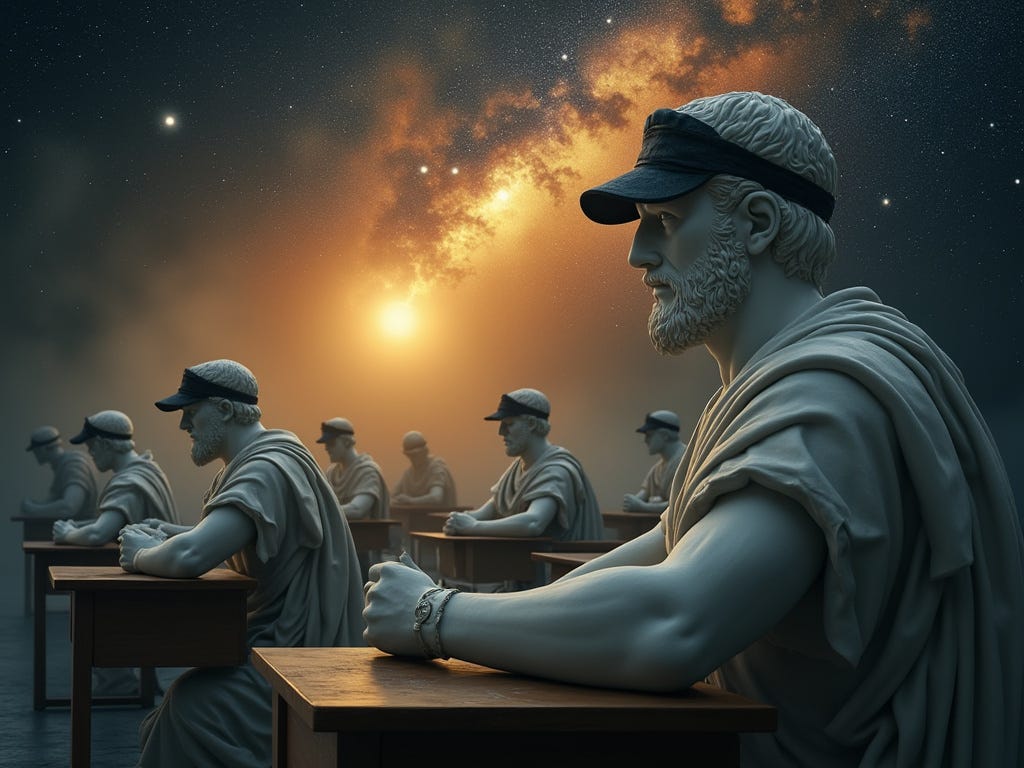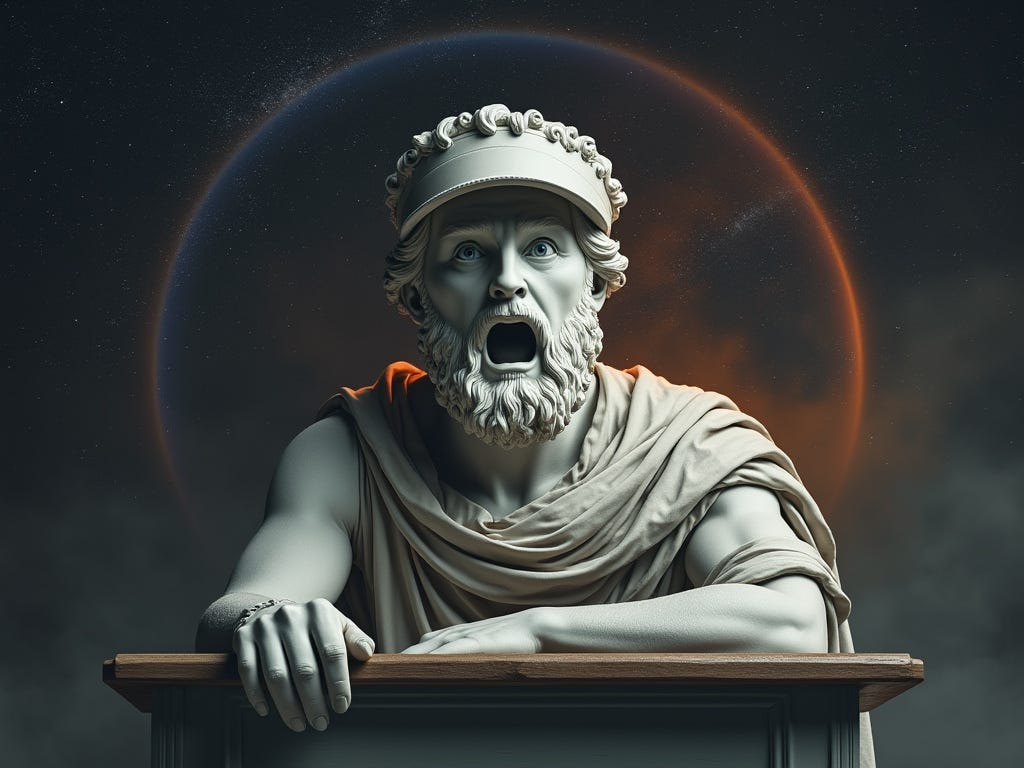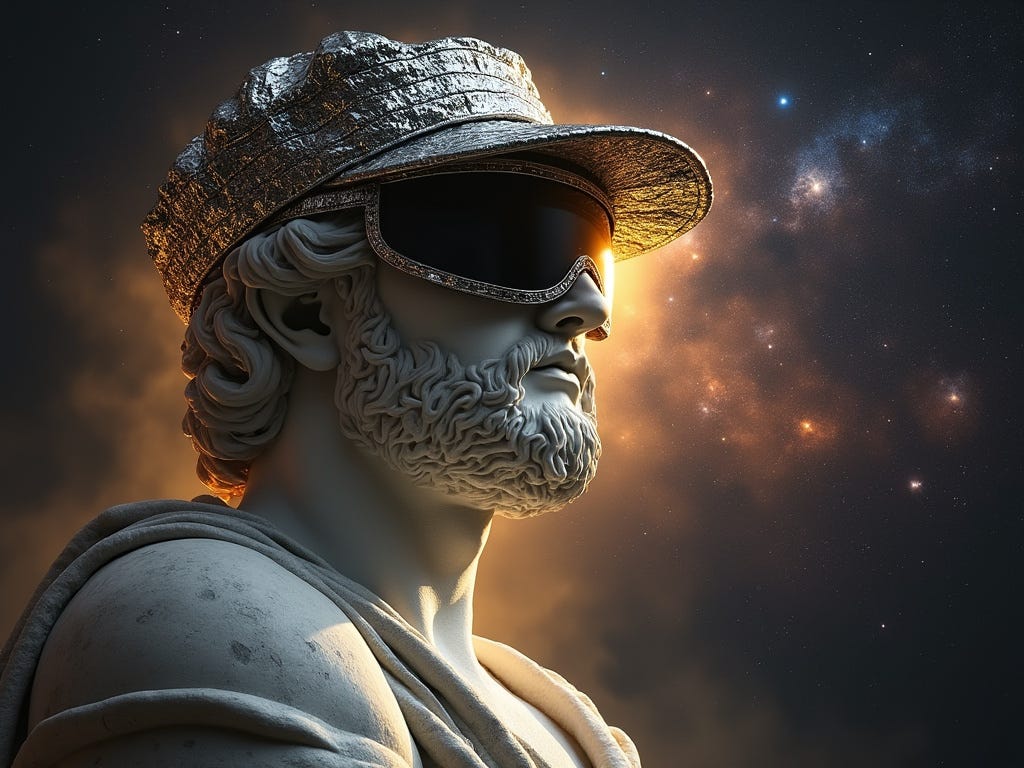Planet Betrayal: Misinformation Sticks
What’s the 8th planet in our solar system? Do you know? Are you sure? Let me tell you the truth.
The Exciting Topic
In Year Three, our teacher—who taught every subject—introduced us to the planets. It was thrilling. Not only did we live on a globe, but there were other globes out there, waiting to be known.
She drew ten circles of varying sizes on the blackboard with white chalk—those were the planets. Then, with her bamboo stick—the same one she used to hit us with—she tapped each circle in turn whilst teaching us a pneumonic.
Her methods worked. In under twenty minutes, we were singing:
Mercury is red (No, it’s not)
Venus is yellow (Not quite)
Earth is home (Fair enough)
Mars is red (Close enough)
Jupiter has the beauty mark (I am fond of this one)
Saturn has the rings (True)
Uranus, Neptune, and Pluto are blue (Clearly an afterthought)
And The Eighth, the last one.
In half an hour, this “knowledge” was engraved in my mind forever.
Belief Without Question
Children believe what they’re told. Why wouldn’t they? Doubt is for the cynical, for those who’ve pressed life’s buttons one too many times and built a protective shell.
Doubt comes when knowledge contradicts what you’ve been told. But as a child, faith in your teacher doesn’t require proof. You trust anyone who sounds like they know what they’re talking about.
You Might Be Wondering
You’ve probably never heard of The Eighth. Maybe it was demoted, like Pluto, and quietly erased from the lineup. Maybe you forgot, or maybe—like so many of us—the school system failed you.
My teacher had completely invented a new planet—and didn’t even put it in the right place! Even with Pluto’s eventual demotion, The Eighth was still out of order.
What’s funnier is she didn’t even bother to name it. She could’ve called it Minerva, after the goddess of wisdom. Or she could’ve gone the quirky route and called it Janet. Janet, the Eighth Planet.
To this day, whenever I recite the planets, I still mutter The Eighth under my breath.
When You Realise You’re The Fool
In Year Five, we had our first proper science class with an actual science teacher. The classroom felt different—more official, more grown-up, with old maps and faded infographics lining the walls. One of them showed the solar system.
When the teacher pointed at the map with her laser, I raised my hand.
“Where’s the eighth?” I asked.
She looked confused for a moment. “Oh, do you mean Neptune?”
My stomach dropped. No, I didn’t mean Neptune. But after a brief pause, I forced a nod. “Yes… Neptune,” I mumbled.
I glanced around, scanning my classmates’ faces. Why wasn’t anyone else asking the same question? Why didn’t they seem as confused as I was?
Doubt crept in. Had I misunderstood? Or worse—had I been taught wrong? One thing was clear: I was the fool now, desperately trying to save face.
Misinformation Sticks
Here’s the thing: misinformation sticks. Once it plants itself in your mind, it’s hard to uproot. Even when the truth arrives, it rarely hits with the same force as that first, crystal-clear falsehood.
When you’re caught off guard—surprised or excited—you’re more vulnerable to believing something false. If the lie is shocking or intriguing, it embeds itself deeply. No matter how much you correct yourself, part of you always clings to that first “truth.”
For me, The Eighth still floats at the edge of my mental solar system. It’s super cold, it’s super far away, and for some reason, in my mind, it’s always purple.
Even after discovering the truth, there’s a choice: do you hold on to what you once trusted, or replace it with something new? It’s not easy—it’s a struggle between old belief and new understanding. The Eighth still lingers, even though I know it never existed. Why else would I bring it up every time I think about the planets?
Life After The Eighth
After the huge disappointment, I had no choice but to run away from home, live off-grid, and dive into a life of crime because society had failed me. They can’t get me if I wear my tin foil hat, right?
Well, not really. I got over it pretty quickly.
That experience wasn’t just about a missing planet. It was about how easily we’re misled by things that seem official or true. Looking back, I wonder how many of my beliefs are just stories I’ve accepted without question. In a world full of constant information, I’ve learned to leave room for doubt—enough to stay curious, but not paralysed by scepticism. It’s about balancing trust and doubt, holding beliefs lightly, and staying open to change when new facts emerge.
In the end, I’ve learned to hold on to my beliefs loosely. It’s safer that way. But don’t get me wrong—I’m still no physicist.
Who knows, maybe we’ll discover a new planet one day. Until then, I’ll keep The Eighth in my back pocket—just in case.
What About You?
Ever held onto a belief, only to find out it wasn’t true? How did it change your trust in what you know? Share your stories in the comments.










I grew up when Pluto was called a planet and so for me, it remains our 9th planet. By what real authority does anyone have to demote it?
Thanks for sharing!
Mel
Hey Antonio, first of all, thanks for engaging and thanks for being entirely reasonable. I like the writing style, I like the narrative drive, you're skilled at discarding redundant exposition, so you've obviously been writing _a lot_.
lemme get to your message, I'm in no position to comment on anyone's writing, but just... fwiw.
I was reading through this and you wrote, "Children believe what they’re told. Why wouldn’t they?"
I'm not sure the premise behind this assumption holds up. I agree, children _believe_ what they're told, but that's not quite the process. I remember my process as a child like this....
Something something fact--why?--something something because--why?--something something because I said so--why?
I've never accepted anything anyone's ever told me ever. i think children are wired to be inquisitive, and the processes your story explores demonstrates perfectly how adults _can_ quash children's natural inquisitiveness with nonsense etc...
The other thing is, I think it's a bit of leap to suggest her--very likely entirely innocent fabrication of planets--as a demonstration of _misinformation_. To me, that's a whole different can of worms.
I'm reading a very interesting obviously competently written story but within a few paragraphs I am not sure some of the intended premises you're attempting to explore through narrative hold up.
Are children really _that_ gullible? Just believe the authority figure. I never did. That doesn't even make sense to me.
If a teacher fabricates her sexy planet story... does that equate to _misinformation_? Maybe I got this wrong, but based on that assumption you just made fiction a thought crime.
So... my analogy is--as I'm reading this--this wagon is running off the road.
Btw, you were never a fool for believing. Being too harsh on yourself. You were just a kid. What do kids know.
I'm an adult and I don't believe a goddamned thing anyone ever says ever. Because my enduring lesson has been that everyone is always mostly full of shit.
Science calls it skepticism. Nothing wrong with skepticism at all.
How do you know a critique is full of shit. When it's longer than the work it's pretending to critique.
So, take it all with a grain of salt. You're a good dude. Your teacher wasn't spreading misinformation. Scientists are just people who suffer from confirmation biases so insufferably preposterous people like us can't convince them they're full of shit.
Don't believe anything anyone ever says. Ever. Figure it out for yourself. I got this from Terence McKenna via Marshall McLuhan via Wittgenstein... we don't need search for absolute truths. That's probably impossible. At the same time, we have to make hard decisions in life. What's true, what's not. Critical questions. There's a pandemic. What's true. What's not.
Wittgenstein proposed, in order to inform yourself, things only need to be _true enough_ In other words, always, and under all circumstances, truth is provisional. Things are true, until they no longer are.
So... your eighth planet was real, until it no longer was. It served its purpose. That's not misinformation. That's good storytelling.
Thanks for reading. How do you know I must be full of shit? I prolly wrote more than you did, and this isn't even a story.